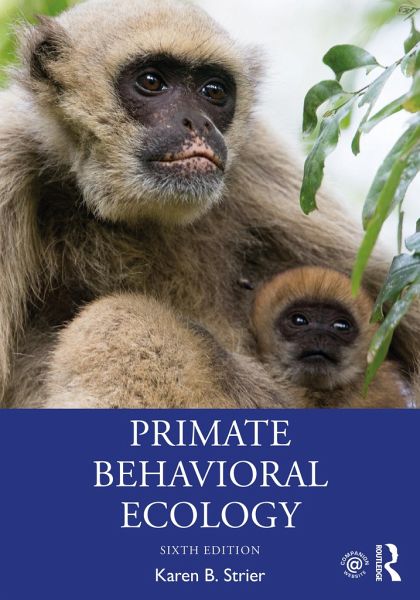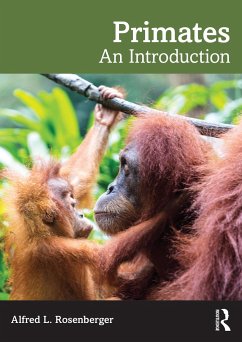
Primate Behavioral Ecology
Versandkostenfrei!
Versandfertig in 6-10 Tagen
124,99 €
inkl. MwSt.
Weitere Ausgaben:

PAYBACK Punkte
62 °P sammeln!
This comprehensive introductory text integrates evolutionary, ecological, and demographic perspectives with new results from field studies and contemporary noninvasive molecular and hormonal techniques to understand how different primates behave and the significance of these insights for primate conservation. Each chapter is organized around the major research themes in the field, with Strier emphasizing the interplay between theory, observations, and conservation issues. Examples are drawn from the "classic" primate field studies as well as more recent studies, including many previously negle...
This comprehensive introductory text integrates evolutionary, ecological, and demographic perspectives with new results from field studies and contemporary noninvasive molecular and hormonal techniques to understand how different primates behave and the significance of these insights for primate conservation. Each chapter is organized around the major research themes in the field, with Strier emphasizing the interplay between theory, observations, and conservation issues. Examples are drawn from the "classic" primate field studies as well as more recent studies, including many previously neglected species, to illustrate the vast behavioral variation that exists across the primate order. Primate Behavioral Ecology 6th Edition integrates the impacts of anthropogenic activities on primate populations, including zoonotic disease and climate change, and considers the importance of behavioral flexibility for primate conservation. This fully updated new edition brings exciting new methods, theoretical perspectives, and discoveries together to provide an incomparable overview of the field of primate behavioral ecology and its applications to primate conservation. It is considered to be a "must read" for all students interested in primates.














